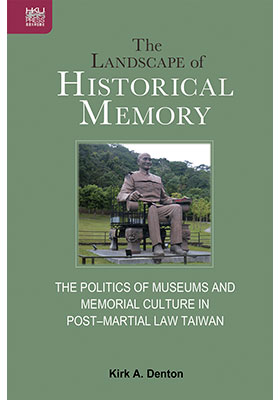The Landscape of Historical Memory
The Politics of Museums and Memorial Culture in Post–Martial Law Taiwan
(歷史記憶的景觀:戒嚴後的台灣博物館和紀念文化的政治意義)
ISBN : 978-988-8528-57-8
March 2021
284 pages, 6″ x 9″, 61 b&w illus.
- HK$620.00
Ebooks
The Landscape of Historical Memory explores the place of museums and memorial culture in the contestation over historical memory in post–martial law Taiwan. The book is particularly oriented toward the role of politics—especially political parties—in the establishment, administration, architectural design, and historical narratives of museums. It is framed around the wrangling between the “blue camp” (the Nationalist Party, or KMT, and its supporters) and the “green camp” (Democratic Progressive Party, or DPP, and its supporters) over what facets of the past should be remembered and how they should be displayed in museums. Organized into chapters focused on particular types of museums and memorial spaces (such as archaeology museums, history museums, martyrs’ shrines, war museums, memorial halls, literature museums, ethnology museums, and ecomuseums), the book presents a broad overview of the state of museums in Taiwan in the past three decades. The case of Taiwan museums tells us much about Cold War politics and its legacy in East Asia; the role of culture, history, and memory in shaping identities in the “postcolonial” landscape of Taiwan; the politics of historical memory in an emergent democracy, especially in counterpoint to the politics of museums in the People’s Republic of China, which continues to be an authoritarian single party state; and the place of museums in a neoliberal economic climate.
“This book offers unique insight into the configurations of international museum culture as manifested in the sociopolitical landscape of post–martial law Taiwan. Using case studies filled with telling details, Denton analyzes how museums both reflect and initiate cultural change. This work adds substantially to Taiwan studies and museology, with in-depth scholarship and innovative observations presented in a clear and compelling narrative.” —Joseph R. Allen, University of Minnesota, Twin Cities
“This is a fascinating and meticulously researched survey of Taiwan’s museums. Denton has produced a book that is both scholarly and highly readable. It will appeal to a wide readership, encompassing social scientists specializing in Taiwan, students of Chinese or East Asian studies, observers of Taiwanese politics and the local cultural scene, and others besides.” —Edward Vickers, Kyushu University




